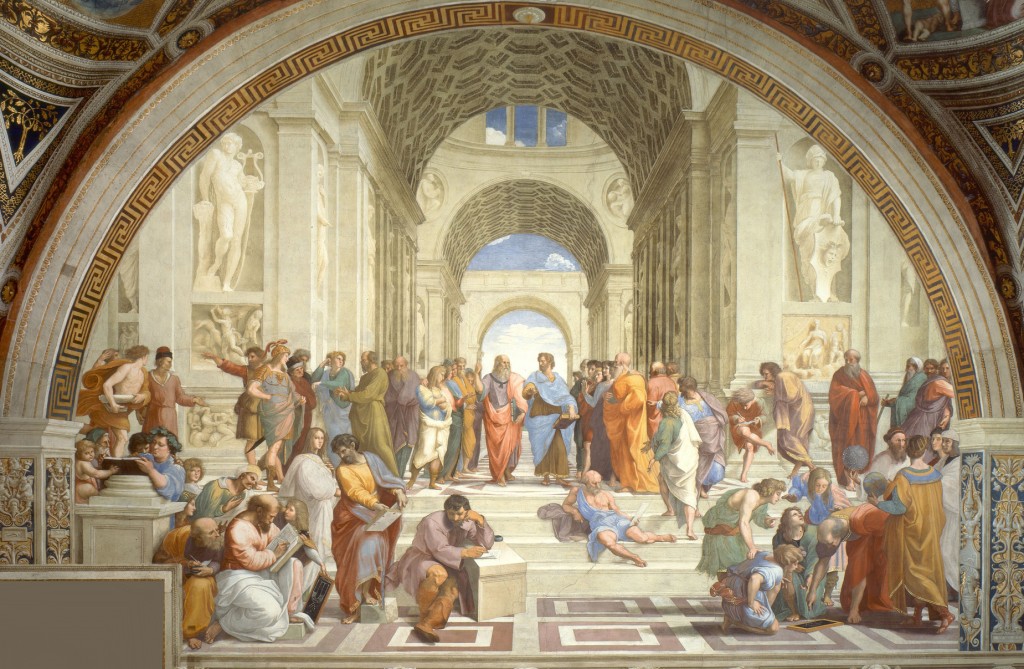
Despite all the relativism today, there is no culture in this world that does not value wisdom. Centuries after their death, many philosophers like Confucius and Socrates are still revered by many.
Philosophers are people who put in extra endeavour in exploring the central questions of life. Typically, their whole lives centre around resolving existential questions about the human condition. If you study their lives, you will find much to respect them for. Many of their contributions in fields like ethics have been valuable to human society. Both philosophers mentioned above in particular lived commendable lives of integrity.

Yet, though revered and while the work of the philosophers have been very influential in shaping the way we perceive the world, the human condition has remained unchanged for the most part. Despite the centuries of contributions by the philosophers, we still struggle with the same existential problems. There are still totalitarian governments, corruption, poverty, and greed in many parts of the world.
Thus far, despite the centuries of rhetoric on ethics and such, nothing much has changed in the souls and spirits of mankind. It is to some extent true that deep down human nature is (flawed) human nature, and so we cannot expect it to change to an absolute degree. While worldviews seem to have changed drastically in all that time, human nature has stayed the same throughout the years.
The interesting question is this; if human philosophies actually offer answers to the world’s problems, why is the only thing many people sense today is that there is no absolute or objective truth? Relativism seems to be the vogue of the current age. Because society in many parts of the world seems to have hit a blank wall or a dead end, many feel that the only truth is found within themselves. This is the lure of New Age philosophies.

As Christians, our source of wisdom cannot be founded in the ideas of men. I am saying this as a person who is fascinated by the field of Philosophy and who has a deep appreciation for Classical Studies. However, despite this, if we truly believe in a transcendent God, then our wisdom must come from Him that transcends this world.
Therefore the questions for believers become “What is wisdom in the Biblical sense?” “Is Truth objective or subjective?”
Truth: Objective or Subjective?
This is a timeless question. Every Christian believes that the Scriptures are a record of objective truths handed down by God. It was not easy to maintain a record of these objective truths in this world down the centuries. Even in the earliest days of the Church, there were immense challenges.
However, though the surrounding circumstances were extremely challenging during these early days of the Church, the Christian society, guided by the Scriptures, was strong and against all odds it stayed strong and cohesive. Not only did the society stay strong, it miraculously triumphed against the world’s largest and most powerful empire of the time. From a persecuted minority, today there are close to 2.4 billion people who identify themselves as Christians. Clearly there must be something in the Christian understanding of truth that deeply impacts people on a very deep level.

The problem is that humans are fickle. We see this even in the Bible, among God’s chosen people. In the search for ‘objective wisdom’ and throughout much of the history of mankind, we have slowly drifted away from God in favor of men’s ideas, and gradually relegated God and His word to the sideline. Even the Church was often guilty of this, too caught up with maintaining positions of control and power, and establishing ‘objective truths’ according to their terms.
About two hundred years ago, a Danish man, Soren Kierkegaard saw the problem. He mourned that the Church of his time was detached from God. Man’s relationship with God had been relegated to a matter of concept and speculation. He was horrified that people who professed they were Christians and who could talk about God and about Christ, yet could not feel the power of the truth they were facing. If Christians truly believed in the extraordinary story of Calvary, and if it was Truth to them, it would permeate their whole lives and not result in apathy.

In his book, ‘The Journey So Far’, (tracing the story of philosophy through the ages and how men have shifted from God-centered worldviews to human-based ones and relativism), Peter Hicks described the dilemma that was confronting Kierkegaard.
The objective thinker contemplates the world slowly, indecisively, uncommittedly in the hope of finding God. The personal and subjective passion of the experiential Christian for the Truth would drive him forward. He would leap out to the Truth, entering into a relationship with it, even without pausing to define it through his own notions (Page 355). His life would be centered on a passionate relationship with God and His word. This passion is what much of the Church has lost, Kierkegaard asserted.

Even so, Kierkegaard, without meaning to, has contributed to a greater drift away from God. This is where we are today. Much of the world has a conceptual idea of God without experiencing a relationship with Him. Others view truth as a wholly subjective thing, based on their personal experiences and their own definition of who they are.
This is the actual existential problem; a society who are either bored and lethargic or unmoored. In order to gain genuine wisdom, and what life is all about, we must return back to a God-centered worldview. Coming back to the question “Is Truth objective or subjective?”, we discover that God’s truths are objective but it demands a personal and subjective engagement and response from the individual. We cannot monopolise the definition of truth, but God’s Truth is unchanging and eternal. And so we need to understand what are the aspects of Truth in the God-centered worldview and what it means for each of us on an individual level.
What are the Aspects of Truth in the God-centered Worldview?
We need to return back to God. Only He can give us wisdom for our questions in life, for everything in it was created from and through His will and power, and they are subject to Him. The Christian understanding of Truth must be God-centered. God is the reason and foundation for Truth and Truth exists because He exists.

We discern this even in the patterns of His design for creation. Like the patterns in His creation, Truth is an expression of the nature of God, and cannot be isolated away from Him. It is unchanging, holy, and personal just as God is personal, holy, and eternal. It does not change according to the whims of men.
The fact that God presented Himself to us as Persons also reflects the significance of the personal aspect of Truth. Our relationship with Christ is with a Person, it is not merely an academic or intellectual question. Just as Christ exemplified discipline, grace, love, obedience, and the like on a personal level, it also requires a personal involvement from the believer into the New Life. This involvement must go beyond an objective indifference.

The Christian’s response to God’s Truth must have an ethical and practical attribute. Because God is active and always engaged in His eternal purpose, Truth in us will not be Truth unless it is applied and lived out. Unlike much of the thinking pattern of the world today, from a God-centered worldview, there is no serious division between the various types of truth. They all overlap and interact in a unified and cohesive whole.
Nature, for example, is a creation of God, and so, for a believer, scientific questions or truths have an ethical and practical implication. Unlike secular scientists who approach first from the evidence of their senses, a Christian is able to discern patterns in science based on their knowledge of God. How he responds to the questions of science comes foremost through His awareness of God. For a Christian, all truth is one for it is all theological (based on God).

For a Christian, truth is much more than just a set of beliefs. It is an actual relationship with a Living God. This demands much more than just a passive agreement to the conclusions of a dialogue or discussion, or even a persuasion through proofs.
The response to Truth opens up the whole of a Christian’s life. The will, the heart, the feelings, the spirit, and the “moral person” are all involved. For a Christian to respond to these areas, the presence of God and the work of the Holy Spirit are needed (‘The Journey So Far”; Page 100).
|Share The Good News|




Leave a Reply